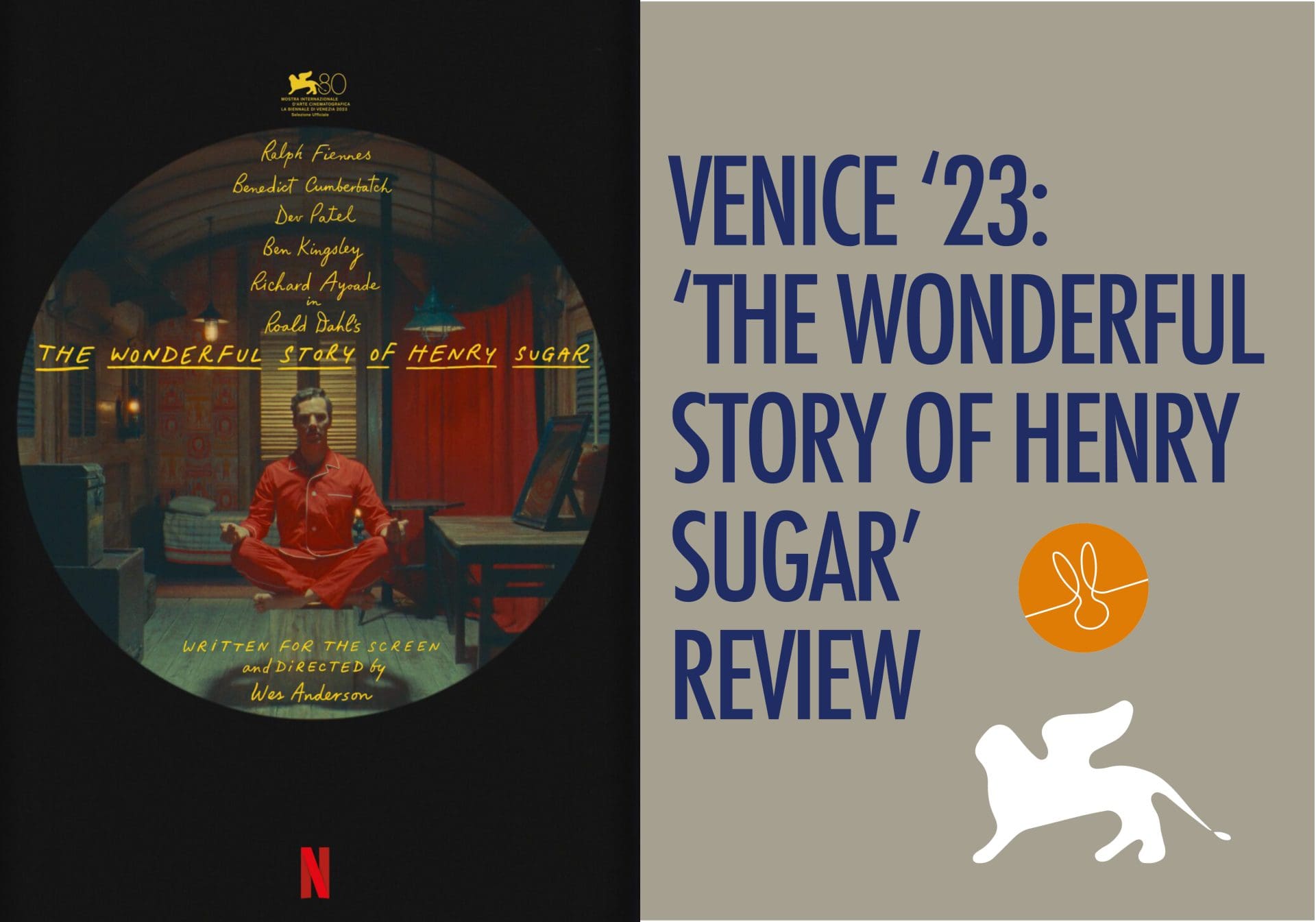
Just under four months ago, filmmaker Wes Anderson’s Asteroid City swept Cannes audiences up in its funny little crater town of camp, conspiracy and cosmic intervention. Not soon after Asteroid City’s release, the internet would take Anderson’s inimitable style and begin, well, imitating it. TikTok users, YouTube influencers and AI enthusiasts alike took to the net to create their own weird worlds inspired by the filmmaker, full of pastel and symmetricity and quirk, quirk, quirk. Some landed as endearing homages, and others as spectacularly misguided attempts at understanding what makes Wes a filmmaker worthy of dissection and discussion in the first place.
With Anderson’s latest, a breezy 45-minute short titled The Wonderful Story of Henry Sugar, the idiosyncratic auteur serves us all a reminder that there’s more to his style than just aesthetic and flair (even if that remains an integral part of his formula), that actually, there’s a whole lot of imagination involved too. And what better way for Wes to demonstrate the fact than to adapt a story from arguably one of literature’s most famously imaginative storytellers, Roald Dahl.
Anderson moviemaking and Dahl’s words and characters have always gone hand in hand—his stop-motion adaptation of Fantastic Mr. Fox remains one of Anderson’s best—and he brings this simple tale of a rich man who discovers his life’s meaning from page to screen in a way that feels as satisfying as a morning stretch.
The rich man is the titular Henry Sugar, played by Benedict Cumberbatch, who stumbles upon a dusty old exercise book in his vast home library. Inside is a story written by an Indian doctor that pertains to a medical marvel—a man who once learned to “see without his eyes”. Inspired, and always the opportunist, Sugar decides to learn the ability himself and use it to make a fortune counting cards at the Casino.
In many ways this feels like a B-side to Asteroid City, and that’s not necessarily a bad thing, even if it means that The Wonderful Story of Henry Sugar comes and goes like a faint breeze instead of a whirlwind. Like City, we’re being told a story within a story…within a story and…yes, within a story again. The film opens with Anderson mainstay Ralph Fiennes as Dahl himself, who bookends the film, and it’s from him we’re introduced to a narrative that continues to enter within itself—via, first, Dahl, telling the story of Henry Sugar, to Sugar, telling the story of Dev Patel’s Dr. Chatterjee, who wrote the only account of this man with the magic eyes. Finally, Chatterjee passes the narrative torch to Ben Kingsley’s Imdad Khan, who tells of his experience transcending the senses after a chance encounter with a meditating Yogi in the Indian jungle. It’s an impressive feat, to relay with airtight efficiency multiple character’s encounters and experiences in forty minutes, but Anderson makes it look effortless through a kind of narrative inception that he’s become so skilled at in recent years.
The film is envisioned once more like a work of theater: scenes transition via the literal shifting of sets, stage props are preferred to CGI, and the same few actors play multiple characters. And through these illusions of artificiality, the film ultimately rings true to a version of storytelling at its most pure and primal.
The Wonderful Story of Henry Sugar is Wes Anderson operating with the same effortless charm, wit, and visual creativity that we’ve all come to expect, and proves beyond a shadow of a doubt that in a world of copycats and AI doppelgängers, no one can quite do Wes like Wes can.
Check out more of our Venice coverage here!



